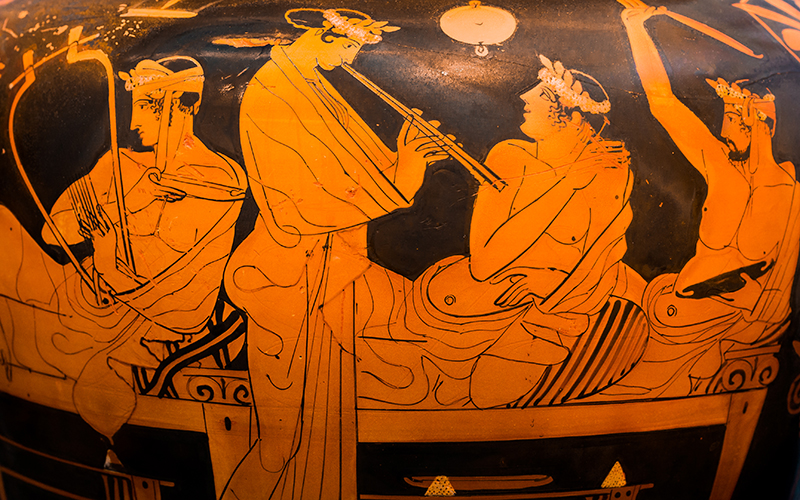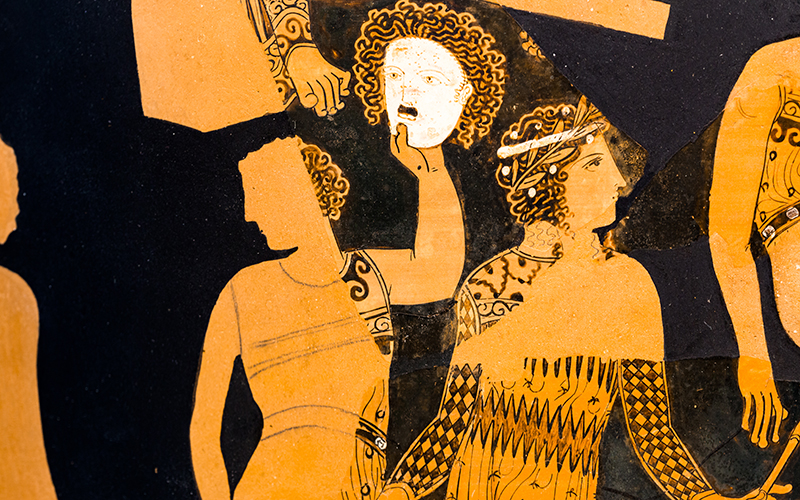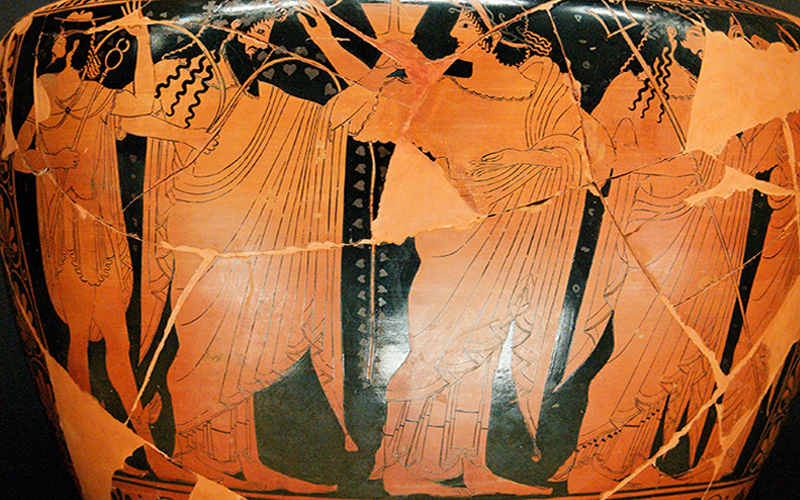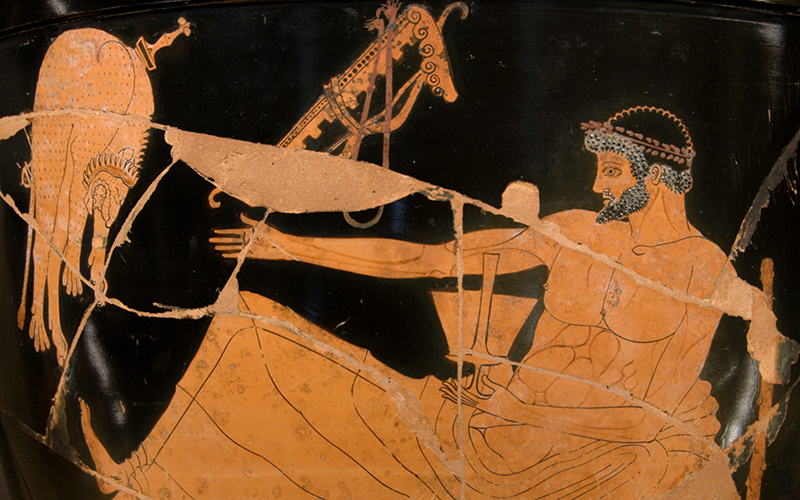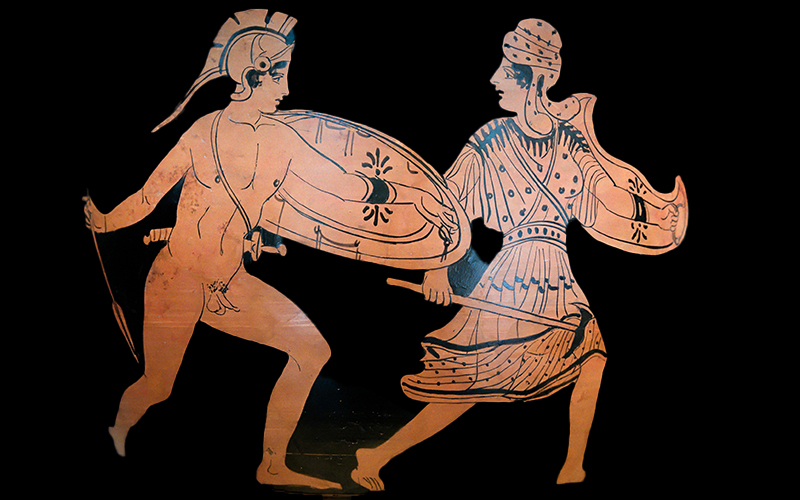
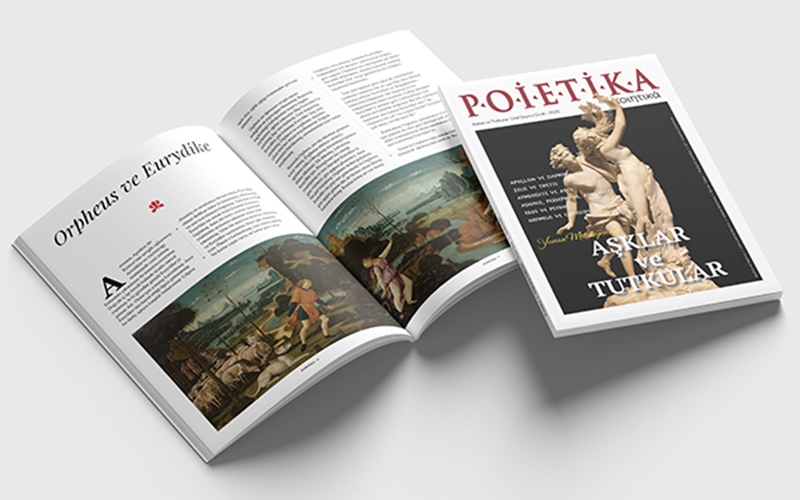



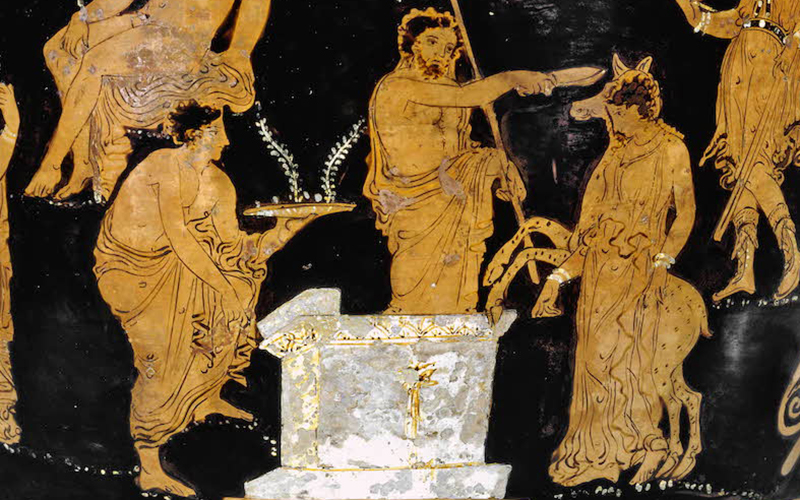
According to reports, Iphigenia is to be sacrificed by her father Agamemnon to appease the goddess Artemis, in hopes that she would send favorable winds for the Achaean fleet.
As is well known, the Achaean armies had gathered at Aulis in preparation for the Trojan expedition. Yet, for days, not a single breeze stirred the sails. To uncover the cause of this unnatural stillness, King Agamemnon turned to the seer Calchas—and what he heard struck him like lightning.
Calchas told him that if he were to offer his daughter Iphigenia as a sacrifice to Artemis, the goddess would grant the winds they needed.
This revelation sparked fierce debate among the Achaean leaders. Some believed the expedition should be abandoned, while others urged Agamemnon to obey the goddess’s will and sacrifice his daughter. Though he initially resisted the idea of sacrificing Iphigenia, the persistent urging of Menelaus and Odysseus eventually wore him down. Agamemnon, with great reluctance, agreed to the plan.
He sent a message to Mycenae, summoning Iphigenia to Aulis under the pretense of arranging her marriage to Achilles. This news delighted Queen Clytemnestra, who was overjoyed at the thought of her daughter marrying the heroic Achilles.
However, upon arriving in Aulis with her daughter, Clytemnestra quickly realized the truth—and was furious. Despite all her efforts, she could not persuade Agamemnon to abandon the plan.
According to sources, she then turned to Achilles, pleading for his help with these words:
"As a mortal, I kneel before you, son of the goddess,
without shame. What honor is left to me?
What do I have more precious than my child?
Help me, son of the goddess, help this poor girl
they falsely call your bride.
I adorned her for death, believing it a wedding.
If you don’t protect her, her blood is on your hands.
Even if you do not marry her, all call her your wife.
By your beard, your strong arm, and your mother, I beg you—
do not let your name be stained.
I have no altar but your knees.
No friend smiles upon me. You have seen
the mercilessness of Agamemnon.
Among a brutal, undisciplined army
stands a lone woman.
If you dare to reach out your hand, we may be saved…"
(Iphigenia at Aulis, lines 900–916)
Still, according to reports, Achilles refused to directly intervene and instead told Clytemnestra to plead once more with Agamemnon—and only come to him again if that failed.
Iphigenia herself is said to have gone to her father and begged him to spare her:
"Father, if I had the voice of Orpheus,
to charm the hearts of men and move the stones with song,
I would use it. But I only have tears.
So I fall at your feet,
born from the very body of the woman you wed,
like a supplicant's olive branch.
Do not send me to the underworld.
Life and sunlight are so sweet…"
(Iphigenia at Aulis, lines 1211–1218)
But her pleas fell on deaf ears. Agamemnon did not change his decision.
Just as Iphigenia was brought to the altar to be sacrificed, a sudden gust of wind swept through the camp, and the air filled with dust. The winds the fleet had long awaited had finally come.
Some claim that Artemis, unwilling to accept the girl’s death, spirited Iphigenia away and placed a deer on the altar in her stead. Others insist that Agamemnon, blinded by ambition, allowed his daughter to be slain. The truth remains uncertain—but the fleet set sail, and the expedition to Troy began.
